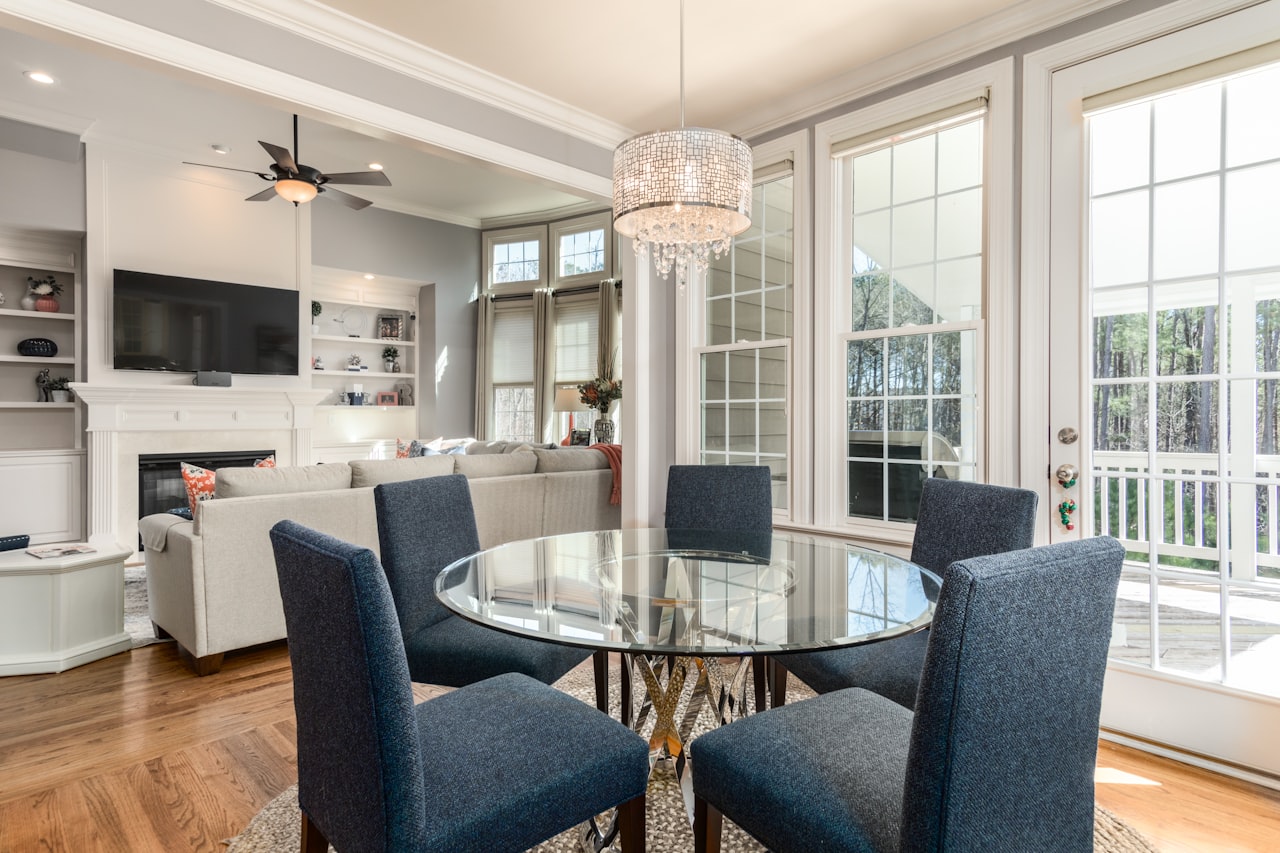Anyone who has ever dreamed of owning a coastal property or Daniel Island luxury homes knows that there is nothing quite like the sound of waves lapping against the shore. However, building a coastal property comes with its own unique set of challenges. From rising sea levels to hurricanes, there are a number of factors that must be taken into account when planning to build on the coast. Fortunately, with the right preparation, it is possible to build a coastal property that will withstand the elements and provide years of enjoyment. In this blog post, we will provide 10 tips for those looking to build a coastal property in Charleston, South Carolina. From choosing the right location to working with a qualified builder, the McConnell Real Estate Partners team is dedicated to helping you make the most of the process and ensure that your dream home becomes a reality.
Inspect Your elevation certificate
Coastal living has its perks – swaying palm trees, the sound of waves lapping against the shore, and salty ocean breezes. But it's important to remember that coastal properties are also at risk for flooding and damage from storms. That's why it's essential to have a well-designed elevation certificate before you begin building. An elevation certificate shows how high your property is above sea level, as well as the Base Flood Elevation (BFE) for your area. The BFE is the height that floodwaters are expected to reach during a 100-year flood event. By law, all new construction must be above the BFE to be considered safe from flooding. So, whether you're building a new home or renovating an existing property, be sure to get an elevation certificate and follow all applicable regulations. It could be the difference between weathering a storm or having your home swept away.
Note flood zones
Anyone who has ever lived near a coastline knows that flooding is always a possibility. That's why it's critical to know the flood zones in the area before building a coastal property or buying Daniel Island luxury homes. Flood zones are determined by the Federal Emergency Management Agency (FEMA) and they take into account the elevation of the land, the proximity to bodies of water, and the vulnerability to storm surges. The risk of flooding can vary greatly from one zone to another, so it's important to consult with a local expert to determine which zone is right for your property. Accurately calculating the cost of building your home includes taking into account the risk of flooding, so identifying flood zones is an essential step in the process.
Understand height restrictions
When building a coastal property in Charleston, it is critical to understand the height restrictions in the area. This is because shadows cast by extremely tall buildings can create excessive areas of darkness. In addition, tall buildings can block sunlight from reaching the ground, which can make it difficult for plants to grow. As a result, understanding height restrictions is essential for preventing these problems. By ensuring that buildings are not too tall, we can help to keep our coastal properties and Daniel Island luxury homes healthy and vibrant.
Determine the best foundation
A foundation is the most important part of any building, and that is especially true for coastal properties. The foundation must be able to withstand the constant onslaught of salt, sand, and water without corroding or weakening. In addition, it must be able to support the weight of the entire structure and protect against flooding of your Daniel Island luxury home. There are four types of foundation that are commonly used for coastal properties: bored piles, driven piles, micro piles, and screw piles. Bored piles are driven into the ground using a large drill, and they are typically made of concrete or steel. Driven piles are also made of concrete or steel, but they are driven into the ground using a pile driver. Micropiles are small diameter piles that are drilled into the ground and then filled with grout. Screw piles are driven into the ground using a helical blade, and they can be made of steel or concrete. Each type of foundation has its own advantages and disadvantages, so it is important to consult with an experienced engineer before making a decision.
Work with an experienced builder
When it comes to building a coastal property in Charleston, it is critical that you work with an experienced builder. There are a lot of unqualified builders out there who are trying to make money off of the vacation home industry, and if you're not careful, you could end up with a subpar home that doesn't last. An experienced builder will know how to construct your home in a way that withstands the elements, and they'll also be able to advise you on the best materials to use. In addition, an experienced builder will have a good understanding of the permitting process and any potential code violations. Trying to navigate these waters on your own can be a daunting task, so it's best to leave it to the professionals. By working with an experienced builder, you can rest assured knowing that your dream home will be built right and last for years to come.
Select your materials wisely
When building any kind of property, it is important to select your materials carefully. This is especially true when building a coastal property, as it needs to be able to withstand the elements. Strong winds, salt water, and high humidity can all take their toll on a home, so it is important to choose materials that are up to the task. For example, using concrete or brick for your exterior walls will help to protect your home from storm damage. Similarly, using hurricane-resistant windows and doors on Daniel Island luxury homes will give you peace of mind in case of severe weather. By taking the time to select the right materials, you can rest assured that your coastal property will be able to withstand whatever Mother Nature throws its way.
Invest in landscaping
A well-landscaped home is a beautiful home, no matter where it is located. But when building a coastal property in Charleston, landscaping becomes even more important. The reason for this is simple: the coastline is one of Charleston's most defining features. A home that blends in with its surroundings will only enhance the city's natural beauty. Furthermore, investing in quality landscaping will help to protect your home from the elements. Wind and salt water can wreak havoc on exposed walls and windows of Daniel Island luxury homes, but well-placed plants can act as a barrier, shielding your home from damage. Ultimately, landscaping is an important part of creating a truly stunning coastal property.
Hurricane and wind protection
Coastal areas are incredibly beautiful, but they also come with their own unique challenges. One of the biggest dangers in coastal regions is hurricanes. These massive storms can cause catastrophic damage to Daniel Island homes and communities, so it's important to take steps to protect your property. Investing in hurricane shutters and wind-resistant windows is a critical part of building a coastal home. These features will help to keep your home safe during a storm, and they can also reduce your insurance premiums. In addition, it's important to work with a local contractor who is familiar with the unique challenges of building in a coastal area. By taking these precautions, you can help to ensure that your home is safe and sound for years to come.
Consider an open floor plan
An open floor plan is critical to ensure that your home is breezy and full of natural light. This is especially important in a coastal climate where the weather is hot and humid. By having an open floor plan, you can take advantage of the sea breeze to keep your home cool and comfortable. Additionally, natural light is important in a coastal home to help prevent mold and mildew growth. By having an open floor plan, you can maximize the amount of natural light that enters your home, helping to keep it fresh and airy. Ultimately, an open floor plan is an essential element to consider when building a coastal property in Charleston.
Incorporate outdoor living space
Coastal properties are some of the most desirable in the country. They offer stunning views, ample opportunity for outdoor recreation, and a sense of relaxation that is hard to find anywhere else. If you're lucky enough to own coastal property, it's important to make the most of it by incorporating outdoor living space into your design. Outdoor living spaces allow you to enjoy the natural beauty of your surroundings while also providing a place to entertain guests or simply relax in the fresh air. In Charleston, South Carolina, where outdoor living is a way of life, incorporating an outdoor living space into your coastal property is critical to ensure that you get the most out of your investment. By taking advantage of the mild climate and stunning scenery, you can create an oasis that you and your family will enjoy for years to come.
We hope you found the tips in this article helpful as you embark on the rewarding process of building a coastal property. If you're interested in purchasing coastal real estate, reach out to McConnell Real Estate Partners today and let them get to work for you!
*Header photo courtesy of Shutterstock
















































































